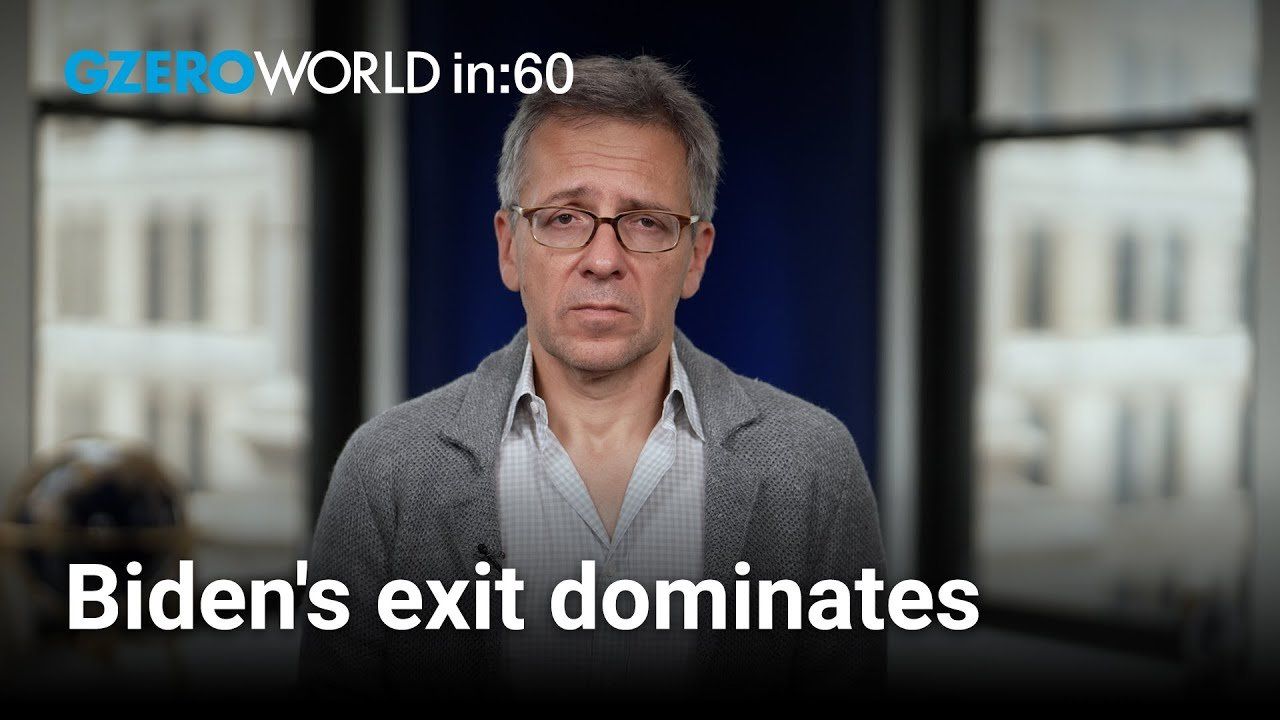Ian Bremmer shares his insights on global politics this week on World In :60.
How will Biden dropping out of the presidential race overshadow Netanyahu's US visit?
Oh, was it happening today? I didn't notice, I was so busy focused on Biden dropping out. No, clearly, it is a massive benefit for Biden that it is now less of a deal. Probably means less demonstrations, means less media coverage. It is a big problem, right? I mean, you've got the US top ally in the Middle East, Israel, the leader is clearly disliked by Biden. Kamala Harris not showing up to preside over Senate. She's, you know, otherwise disposed at a prearranged meeting in Indianapolis. And then you've got Netanyahu going down to Mar-a-Lago to meet with the guy that he wants to become president, former President Donald Trump. All of that is problematic for Biden but less problematic because US political news at home is so overwhelming and headline-worthy.
Can the China-brokered agreement between Hamas and Fatah help bring Palestinian peace?
Unclear. I mean, the fact that Hamas, which is seen as a terrorist organization, and rightly so in my view, by the United States, by most of the West, and certainly by Israel, now has a peace agreement with Fatah, definitely brings the Palestinians closer together. But frankly, since October 7th, the Palestinians have only become more radicalized as a population; just like in Israel, the Jews have become more radicalized as a population, both less interested in peace. The rest of the world is very interested in peace, but very hard to get from here to there. I do think there is a chance that we can still get that six-week agreement because the Knesset is going to be out of session until October, which means that Netanyahu doesn't have to worry about getting thrown out of office if he has a six-week agreement and goes back to fighting, the far right, by the time they could throw him out, the Knesset would be back in. That's interesting and worth looking at.
After a long hot summer of French politics, is the Olympics a rallying moment for Macron?
Not at all. He can't get a government together. That has proved very challenging for him. 2027 still looks like the end of centrism in France, at least for a while. Not going to stop me from watching the Olympics though.
More For You
Most Popular
Think you know what's going on around the world? Here's your chance to prove it.
Xi Jinping has spent three years gutting his own military leadership. Five of the seven members of the Central Military Commission – China's supreme military authority – have been purged since 2023, all of whom were handpicked by Xi himself back in 2022.
From a resilient but divided consumer economy to cooling small business hiring, tighter housing affordability, and AI’s shift from buzzword to economic engine, 2025 revealed a “K-shaped” recovery and rapid technological transformation. Bank of America Institute’s 2025 Year in Review distills the data behind the year’s defining trends. Explore the 2025 Year in Review from Bank of America Institute.
